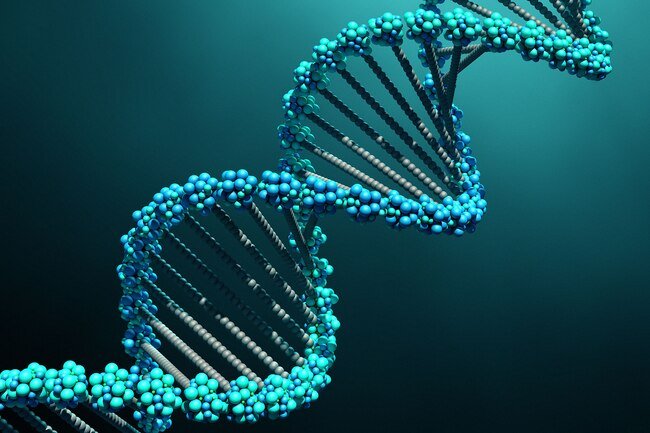Brain and Nervous System: Left-Handed vs. Right-Handed People
How Rare Are Lefties?

Right-handed people dominate the world, and it's been that way since the Stone Age. How do we know? Researchers figured it out by measuring the arm bones in ancient skeletons and by examining wear patterns in prehistoric tools. In Western countries, lefties make up only about 10% of the population. Folks who favor different hands for different tasks (mixed handed) or who use both hands with equal skill (ambidextrous) are uncommon.
Genetic Roots

Scientists have long known that handedness is partly shaped by genes. But it wasn't until 2019 that they identified differences in parts of the DNA of left- and right-handers. The study, which also analyzed brain scans of 9,000 British subjects, found that in lefties, the parts of the right and left sides of the brain that process language work in better tandem. Whether that makes left-handers more fluent speakers is still to be investigated.
Handedness in the Womb

Fetuses start to move their arms around 9-10 weeks. By early in the second trimester, the babies show a clear preference for sucking one thumb over the other. So handedness is probably hardwired before birth. Still, most development experts say parents likely won't get a good sense of their child's dominant hand until age 2 or 3. Many kids continue to switch hands for different tasks during early childhood.
Mixed Dominant Hands

Studies show that non-right-handed students are much more likely to struggle in school and have ADHD symptoms. That may be particularly true for those who are mixed-handed or ambidextrous. One study found that children who switch hands back and forth are about twice as likely to have dyslexia. Researchers don't know exactly why. But they suspect that having an inconsistent dominant hand may be a bigger problem than consistent left-handedness.
Superior Lefties?

Your brain's right side controls muscles on the left side of your body and largely drives musical and spatial abilities. That may be why left-handers often hold more than their share of slots in creative professions. Mirror writing, where letters are reversed and written backward, is almost always done with the left hand. Some studies show that left-handed children score higher on verbal reasoning or are more likely to be in gifted programs. But other research differs.
Handedness and Age

In an interesting experiment with right-handed seniors, researchers found that the subjects relied less and less on their dominant hand the older they got. As their right hands grew slower and unsteady, the elderly people handled some of the tasks just as well with their left hands. But they still all saw themselves as strong righties.
Handedness and Athletics

Lefties appear to have an edge in sports like boxing or fencing, where they might surprise opponents used to facing off against mostly right-handers. In some years, nearly half of Major League Baseball's All-Star roster has been southpaws or switch hitters. But that may be due less to athletic talent than to practical advantages like the fact that left-handed hitters stand closer to first base.
Brain Disorders

There's a well-established link between left-handedness and mental conditions like schizophrenia, which can cause hallucinations and impaired thinking. A large recent study in the U.K. found a strong link between regions of the brain involved in handedness and how likely you are to have mood swings, restlessness, and neuroticism, a personality type marked by anxiety and fear that sometimes can veer into mental disorder.
Humans vs. Apes

We're not the only animals with a handedness trait. Researchers watching wild chimps found they favor their left hands twice as often when fishing for termites. And the same was largely true for chimpanzees raised in captivity. But results were different for nut-cracking. For that task, which requires sheer force instead of the fine motor skills needed for extracting insects, wild chimps were much more likely to favor their right hands.
Forced Right-Handedness

Cultural biases against left-handers has existed throughout history. In the Middle Ages, the devil was believed to be a lefty. In Japan, China, and other Asian countries, the percentage of left-handers is much smaller than in the West. American teachers and doctors in the early 1900s believed that left-handers were more prone to mental disorders and pressured students to switch hands.
Famous Lefties

Four of the six most recent U.S. presidents were lefties: Ronald Reagan, George H.W. Bush, Bill Clinton, and Barack Obama. Celebrity southpaws include Oprah Winfrey, Bill Gates, Tom Cruise, Paul McCartney, Prince Charles, and his son, Prince William.
Tools for Lefties

If you're a righty and ever used your left hand to cut with scissors, you know it's awkward. Lefties can find a growing number of products for the kitchen, office, and elsewhere that are designed with them in mind. You can buy knives with the sharpened edge on the right side of the blade for cleaner slicing. Or a measuring cup with unit labels that face you when you hold it in your left hand.
Brain and Nervous System: Left-Handed vs. Right-Handed People
IMAGES PROVIDED BY:
- CORDELIA MOLLOY / Science Source
- Design Cells / Getty Images
- selvanegra / Getty Images
- BSIP / Medical Images
- Dmitry Belyaev / Getty Images
- Olha Pashkovska / Getty Images
- Christian Petit / Science Source
- NIMH / Wikimedia Commons
- slpu9945 / Getty Images
- Photos.com / Getty Images
- Clockwise from top left: dodmedia / Wikipedia, Obama White House, Gage Skidmore / Wikipedia, Vera Anderson / Getty Images
- anton / Wikimedia Commons
REFERENCES:
- Philosophical Transactions B: "Why Are Some People Lefthanded? An evolutionary perspective."
- American Psychological Association: "The left brain knows what the right hand is doing."
- NIH Genetics Home Reference: "Is handedness determined by genetics?"
- Brain: "Handedness, language, areas of neuropsychiatric diseases: insights from brain imaging and genetics."
- Journal of the Royal Society Interface (U.K.): "A model balancing cooperation and competition can explain our right-handed world and the dominance of left-handed athletes."
- Journal of the Royal Society Biology Letters (U.K.): "Left-handedness and time pressure in elite interactive ball games."
- PNAS: "Wild chimpanzees show population-level handedness for tool use."
- Pediatrics: "Mixed-Handedness Is Linked to Mental Health Problems In Children And Adolescents."
- Demography: "Nature's Experiment? Handedness and Early Childhood Development."
- Perceptual and Motor Skills: "Do Left-Handed Competitors Have an Innate Superiority in Sports?"
- Global Journal of Archaeology and Anthropology: "Left-Handedness and Stigmatization in Africa: Implications for Parents and Teachers."
- The North American Review: "Left-handedness and Left-sidedness."
- Online Etymology Dictionary: "Sinister."
- Newsweek: "International Left-handers Day: Famous Left-handed People, Left-handed facts, and Left-handed Products Revealed."
- Time: "Top 10 Lefties."
- Anythinglefthanded.co.uk.
- Family Handyman: "15 Tools Made Specifically for Lefties."
- PLOS One: "Age-Related Attenuation of Dominant Hand Superiority."
- Annals of the New York Academy of Sciences: "The Evolution of Human Handedness."
- Johns Hopkins University Press: "Stuttering and 'Retraining' Left-Handed Children in Mid-Century U.S."
- Journal of Neurology, Neurosurgery, and Psychiatry: "Mirror writing: neurological reflections on an unusual phenomenon."
- Frontiers in Psychology: "The Prevalence of Left-Handedness Is Higher Among Individuals With Developmental Coordination Disorder Than in the General Population."
- University of Washington: "Neuroscience for Kids: One Brain … or Two?"
- Newsweek: "Science: Why Lefties Make Better Baseball Players."
- Laterality: "Is there geographical variation in human handedness?"
- IMDb: "Top 50 Famous Left Handed Celebrities."
© 1996-2022 WebMD, LLC. All rights reserved.
Source slideshow on WebMD
